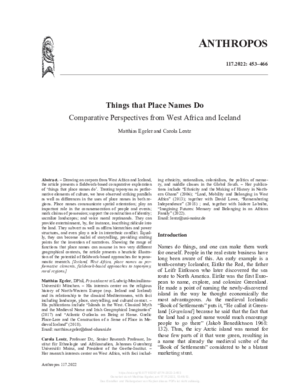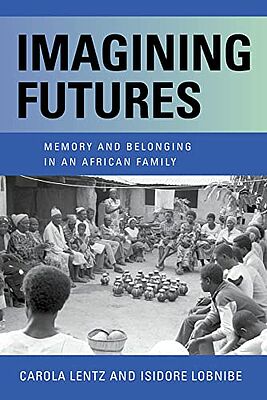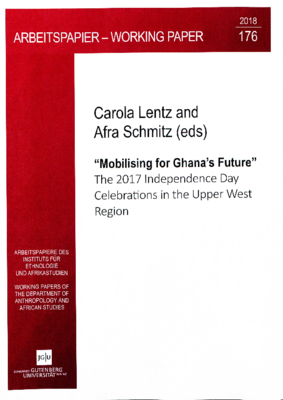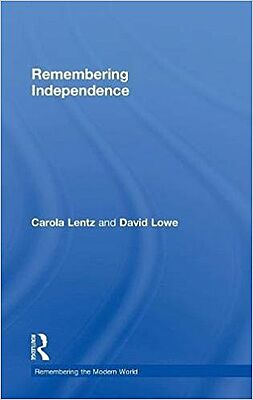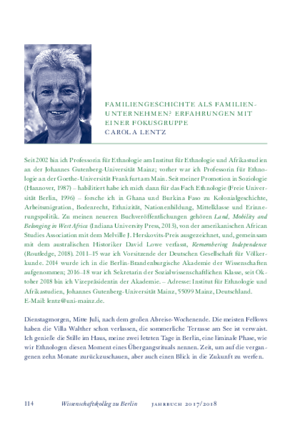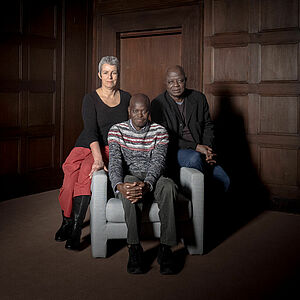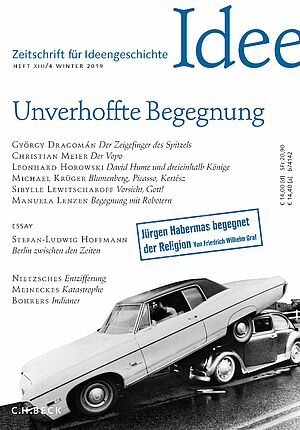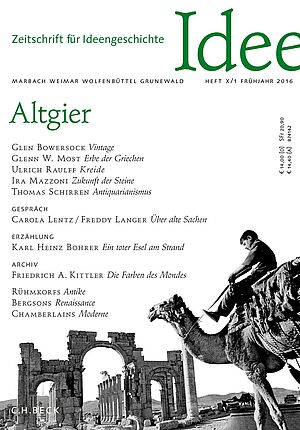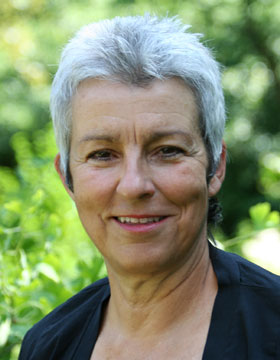
Carola Lentz, Dr. phil.
Professor of Social Anthropology
Johannes Gutenberg University Mainz
Born in 1954 in Braunschweig, Germany
Studied Sociology, Political Science, and German Literature at the University of Göttingen and at Freie Universität Berlin and Agricultural Sciences of the Tropics and Subtropics at the University of Göttingen
Focus
Family History and Social Change in West AfricaProject
Yob Yir: the Social Biography of a West African Family
My project explores the history and contemporary situation of one extended family from Northern Ghana, Yob yir, "the house of Yob", as the more than four hundred living and deceased descendants of Yob, the founding ancestor, and their spouses often call it. How have this family's economic strategies, educational aspirations and occupations changed over the past five generations (ca. 1870 to ca. 2010)? I will examine how different members of the various generations of Yob's descendants have made different use of the new religious, educational, economic, and political opportunities brought about by the colonial regime and post-colonial developments. How have members of the family, in turn, shaped the new institutions in their capacity as labour migrants, teachers, civil servants, development workers, cultural entrepreneurs, artists, politicians, or active lay men and women or priests in the Catholic Church? How has the availability of formal education and new religious affiliations transformed internal and external relations? Clearly, the multiple processes of modernization in the wider society have not resulted in any clear-cut trend toward the nuclear family, but rather strengthened the importance of extended family networks. At the same time, the family members struggle to (re)define their own roles and negotiate their kin's expectations of solidarity. Remembering the family history, through rituals such as funerals and other family celebrations, narratives, proverbs, songs, photographs, films, gravesites, buildings, and other lieux de mémoire, has played an important role in dealing with these moral challenges. As family members have dispersed geographically, remembering the family origins and genealogy has become increasingly important for the continuation of a sense of belonging to one family. How such a living family "archive" has been constituted, and how it has changed over the generations, is one of the central themes that I will explore.Recommended Reading
Lentz, Carola. "African Middle Classes: Lessons from Transnational Studies and a Research Agenda." In The Rise of Africa's Middle Class: Myths, Realities and Critical Engagements, edited by Henning Melber, 17-53. London: Zed Books, 2016.
-. Land, Mobility, and Belonging in West Africa. Bloomington: Indiana University Press, 2013.
-. "The 2010 Independence Jubilees: The Politics and Aesthetics of National Commemoration in Africa." Nations and Nationalism 19, 2 (2013): 217-237.
Colloquium, 13.03.2018
Imagining Futures: Memory and Belonging in an African Family
Why study families and family memory? Even in societies where state institutions have taken over many of the tasks that were formerly performed by families, families continue to ‘bind’ people; they connect older and younger generations and provide access to material and immaterial resources, but also exert social control and impose obligations to care for one’s kin. Families are, so to speak, instruments of transmission of various resources through time. What is transmitted from one generation to the next comprises not only material, tangible property but also intangible heritage, including stories, rituals, symbols and, more generally, knowledge as well as values. Central to this heritage are memories of the family history. Indeed, families are held together or divided, as the case may be, by memories of past events. The capacity of family members to act in the present and to shape their own and their relations’ future is premised on active, selective remembering and forgetting.
Our book project explores the dialogical and mutually constitutive relationship between remembering family history and notions of family membership. Drawing on Tamara Hareven’s (1977) idea of complex relations between individual time, family time and historical time, we examine the history of remembering and belonging, and their interrelation, in one extended African family. How has family remembering changed over the past century in response to the radical transformation of the socio-economic bases of family life, the conversion of a majority of family members to Catholicism and the increasing geographic and social mobility of family members? How have such new challenges to family cohesion and changing intra-family relationships shaped new ways of turning to the past? And vice versa: how can particular constructions of the family past stabilize, contest or redefine understandings of who belongs to the family and how family members should comport themselves?
In our book, we will pay close attention to the changing genres (ritual texts, songs, proverbs, personal names, stories, gossip, genealogies, images, documents etc.) and media of remembering (oral performances, written texts, photography, film and video, Facebook and WhatsApp etc.), and we examine how these media shape the contents of ‘what’ is being remembered, and what silenced or forgotten. We will also discuss questions of power and authority that intervene in all acts of transmission of memories, asking who the gatekeepers of family memory are and who decides what to remember or to forget, which memories are ‘officialized’ and processed as ‘gossip’ etc. In short: our project explores how making memory and making the family are intertwined.
In our presentation in the colloquium, we will briefly present the overall project and give insights into the first chapter of the book, which discusses a recently developed format of family memory, namely the first so-called Homecoming festival, which was celebrated in December 2016.
Publications from the Fellow Library
Lentz, Carola (Baden-Baden, 2022)
Things that place names do : comparative perspectives from West Africa and Iceland
Lentz, Carola (Bloomington, Indiana, 2022)
Imagining futures : memory and belonging in an African family
Lentz, Carola (Stuttgart, 2021)
Das Goethe-Institut : eine Geschichte von 1951 bis heute
Lentz, Carola (Cambridge, 2020)
Doing being middle-class in the global South : comparative perspectives and conceptual challenges
Lentz, Carola (Mainz, 2018)
"Mobilising for Ghana's future" : the 2017 independence day celebrations in the upper west region Arbeitspapiere ; Band 176
Lentz, Carola (London, 2018)
Remembering independence Remembering the modern world
Lentz, Carola (Paris, 2017)
Ghanaian "Monument Wars" : the contested history of the Nkrumah statues
Lentz, Carola (Cambridge, 2017)
‚Kakube has come to stay’ : the making of a cultural festival in Northern Ghana, 1989-2015
Lentz, Carola (2016)
African middle classes : lessons from transnational studies and a research agenda
Lentz, Carola (2016)
Culture : the making, unmaking and remaking of an anthropological concept
Made at Wiko 11/17/22
Made at Wiko 03/03/22
Made at Wiko 06/05/20
Made at Wiko 05/01/18
Köpfe und Ideen 2018
The House of Yob
a portrait of Carola Lentz, Isidore Lobnibe, Stanislas Meda Bemile by Manuela Lenzen
